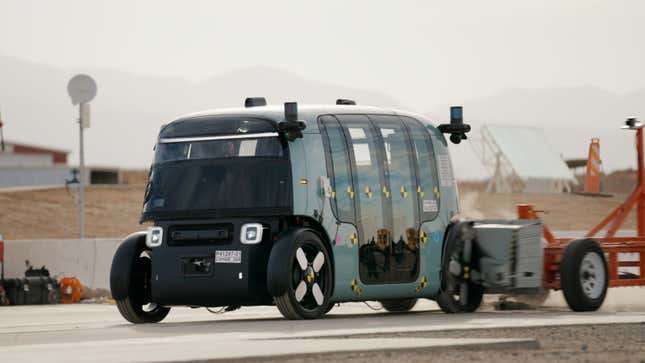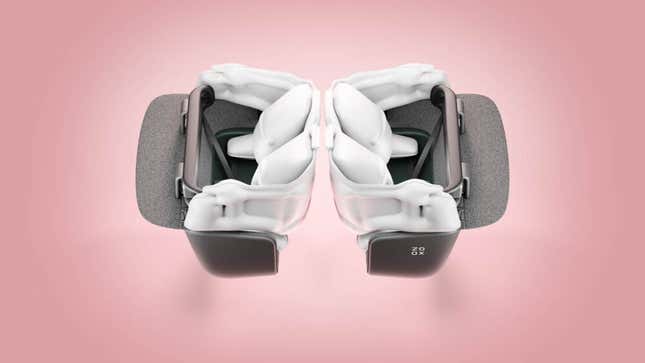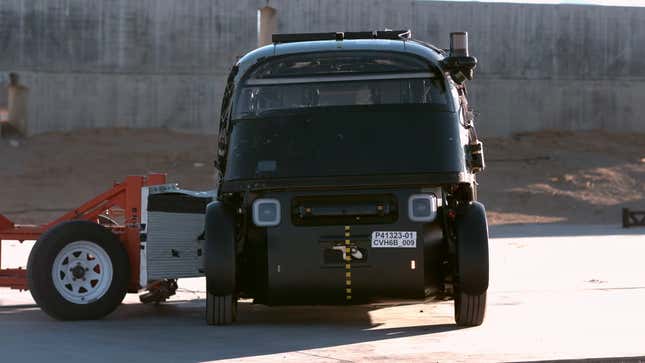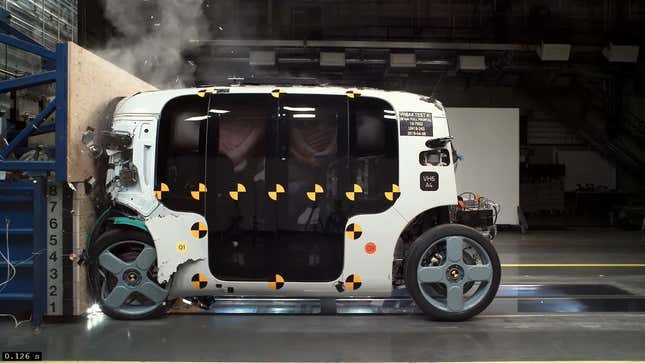
Zoox has had to disclose the details of its “self-certification” process after federal regulators in the U.S. raised questions about the safety of the Amazon-backed company’s autonomous vehicles, or robotaxis, which started operating on public roads in February of this year.
In case you missed it:
- These Are Your Ideal Getaway Cars
- The Best Autobahn Top Speed Videos of All Time
- These Are the Cars Readers Say Were Made Just Shy of Greatness
Despite the unusual path “self-certification” entails, it’s allowed in the U.S., but the federal government can always audit the testing process. Zoox swears that even though it has, indeed, self-certified its vehicles, it did so through the same conventional tests that every other car on the road must pass to meet Federal Motor Vehicle Safety Standards. In fact, the AV company says its robotaxis not only meet but exceed the FMVSS in America, as this video shows:
The testing that the cute little robotaxis went through included at least six crash tests; among these were frontal, offset, angled and side-moving barrier crashes. The process also required a battery of trials that allegedly build upon existing crash safety requirements, such as a high-speed rear impact test.
The integrity of the robotaxi’s fully-electric drivetrain was also tested under certain crash conditions. The Zoox AV’s small size and quirky design posed issues for the company’s engineers, who had to work around much smaller crumple zones and the lack of a front panel or dashboard in the robotaxis.
And Zoox has run into other issues self-certifying its robotaxis because the unconventional cars are tricky to test under current safety standards, which never had to account for autonomous vehicles that lack traditional vehicle controls. Both Ford and General Motors have also applied for the same process but ultimately backed out given the difficulty of seeking self-certification, according to Automotive News.

To get around some of the issues, Zoox came up with a “horseshoe-shaped airbag design,” per Auto News. Two U-shaped airbags deploy from the roof and compartmentalize the two rows of passengers in order to prevent them (or, at least try to prevent) from crashing into each other during a collision with another vehicle. Zoox calls the novel design an industry first, which is to be expected from the company, although its director of homologation, Amanda Prescott, is a former compliance engineer who once worked for the NHTSA.
Prescott says the Zoox robotaxis were made to provide all passengers the same level of safety, while federal crash standards currently have higher standards for the safety of passengers in the front row. She suggests that Zoox always had the FMVSS in mind as the foundation of its safety standards, but the company’s safety innovations have helped its robotaxis exceed these standards.
Despite the years-long process towards self-certification, Zoox is undeterred and utterly convinced that its robotaxis are the safest AVs around. Auto News adds that if the company’s tests and self-certification is accepted by the feds, it could be a first for the industry, and could even blaze a path for others to follow.

